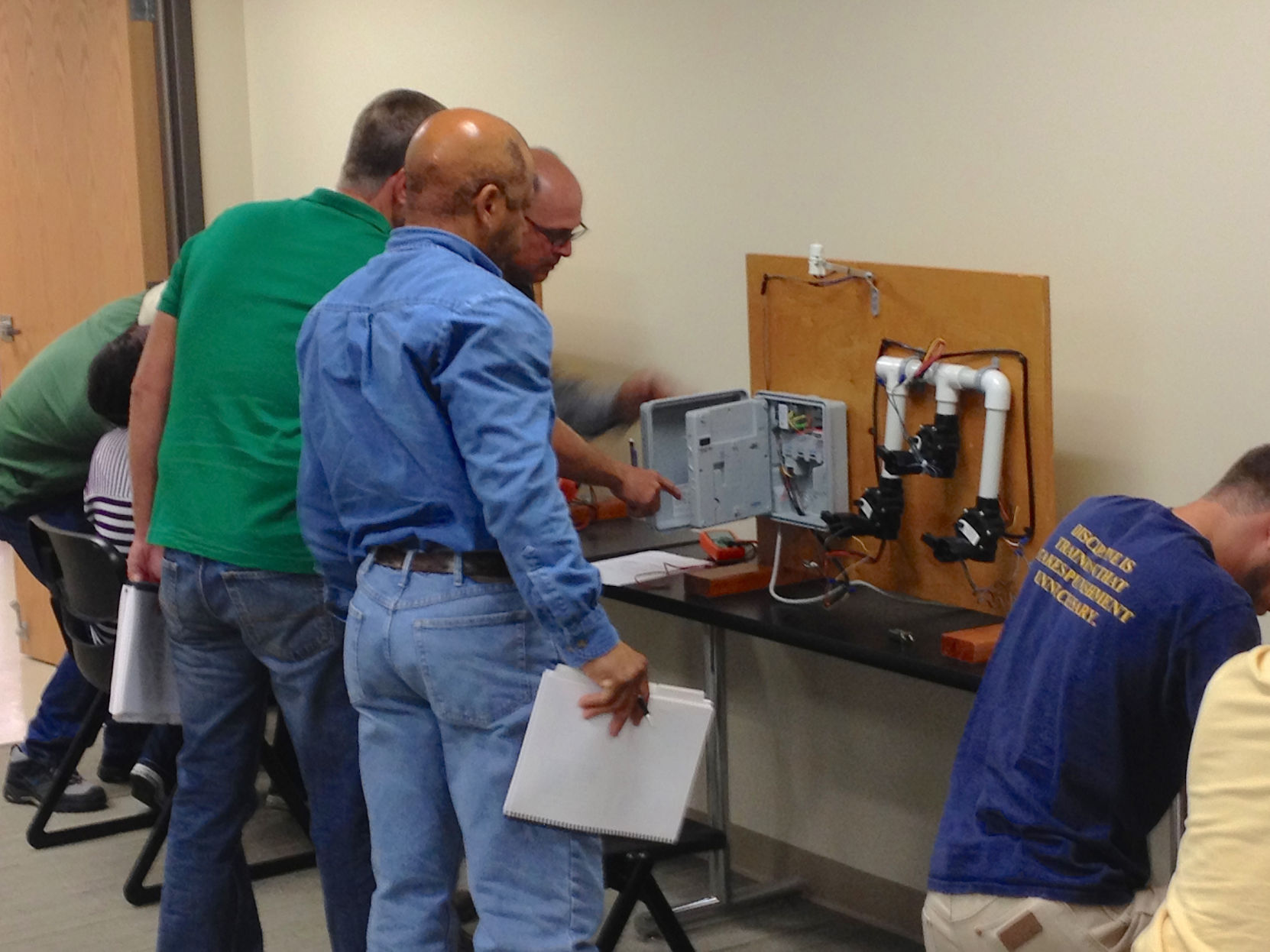Texas A&M’s School of Irrigation will hold a training series for professionals through August in response to drought conditions now prevailing through much of the state.
“Over 75 percent of the state is currently experiencing some level of drought and it affects local water supplies and stresses landscape plants,” said Charles Swanson, Texas A&M AgriLife Extension Service irrigation specialist in College Station. “Due to these drought conditions, 657 water systems statewide currently have mandatory water restrictions. July is historically the month when water requirements are at their highest, often relying on irrigation systems to maintain quality landscapes.”
Irrigation trainings are geared for irrigation professionals, landscape managers and water conservation staff. Topics include irrigation troubleshooting, alternative water for irrigation, irrigation auditing and irrigation design.
In July there will be two, one-day trainings on the campus of Texas A&M University in College Station:
July 25—Irrigation Troubleshooting and Performance Testing of Irrigation System. This course provides hands-on training in the classroom on how to troubleshoot common irrigation controller programming and electrical problems. It also goes outside the classroom to evaluate and test real irrigation systems.
July 26—Permitting of Alternative Water for Irrigation. This course introduces water managers to the use of reclaimed, greywater and other alternative water sources for landscape irrigation. Students will learn about the state rules and regulations and how to complete the required permitting application for use of non-potable water at their sites.
In August a series of two-day trainings will be offered in Richardson and College Station:
Aug. 7-8—Landscape Irrigation Auditing & Management. This course will be held at the University of Texas at Dallas and over a two-day period will provide real hands-on training for irrigation professionals and water conservation staff on how to conduct an irrigation audit using real irrigation systems. Students will get experience conducting an irrigation catch can test and learn how to analyze the results. An added benefit of the course for those who attend is the option at the end of class to take the EPA WaterSense Labeled Landscape Irrigation Auditors Exam to become a Texas Certified Landscape Irrigation Auditor.
Aug. 14-15—Irrigation Computer Aided Design Workshop, College Station. The Irrigation CAD Workshop will teach students how to produce a computer aided design for new landscape irrigation systems. Over the course of two days, students will be introduced to irrigation design software and by the end of class learned how to produce a complete residential irrigation design from scratch.
All courses are approved by the Texas Commission on Environmental Quality for continuing education units for licensed irrigators, irrigation technicians and licensed irrigation inspectors. A registered professional engineer can obtain up to eight professional development hours for attending the Permitting of Alternative Water for Irrigation course.
For additional details on course, visit the Texas A&M School of Irrigation Website at https://irrigation.tamu.edu.
Course registration is available at agriliferegister.tamu.edu.


